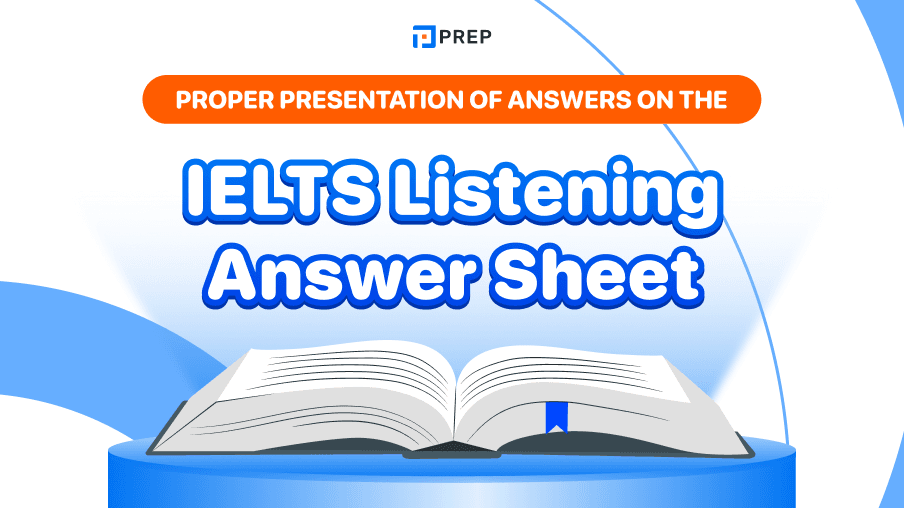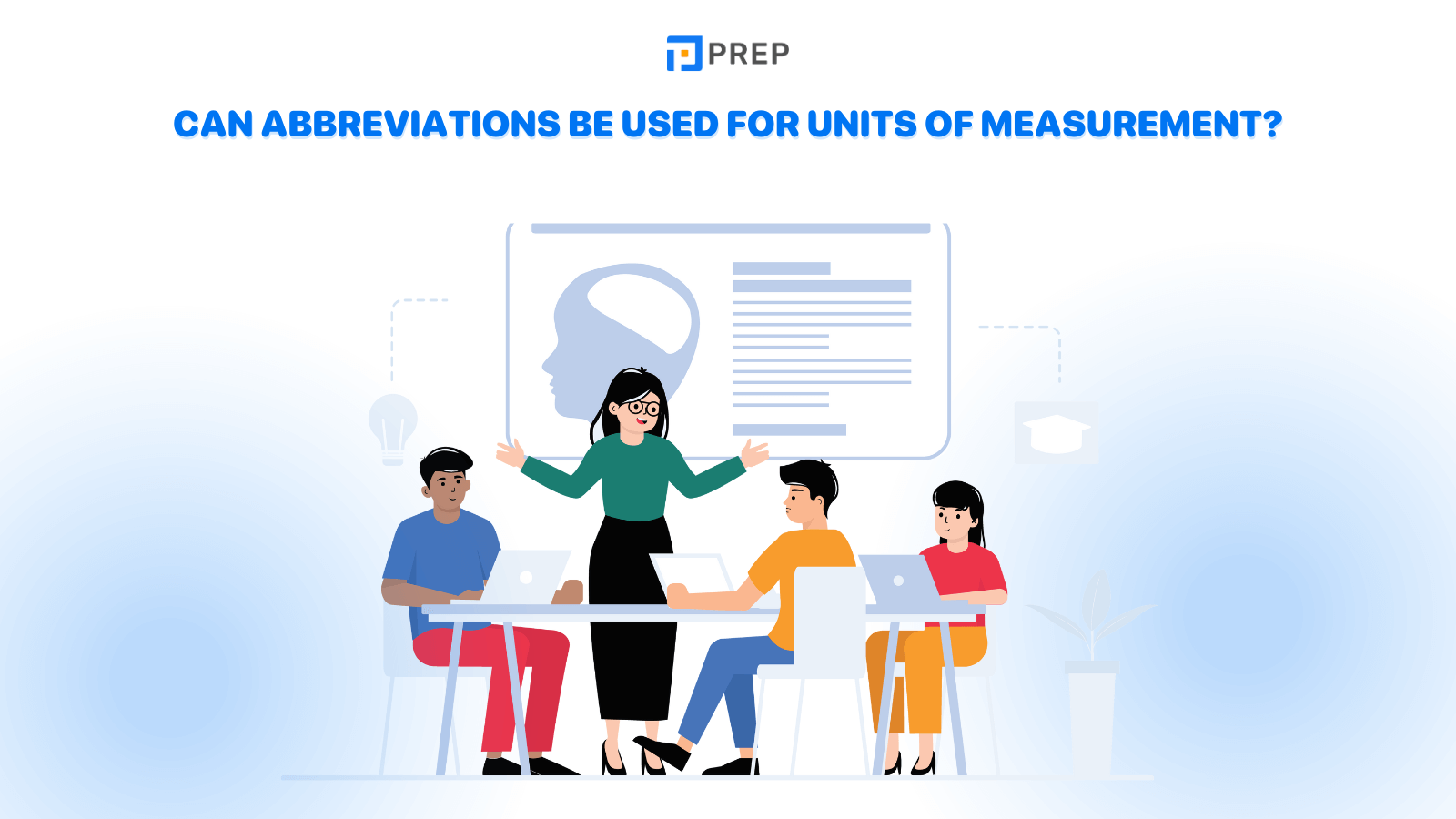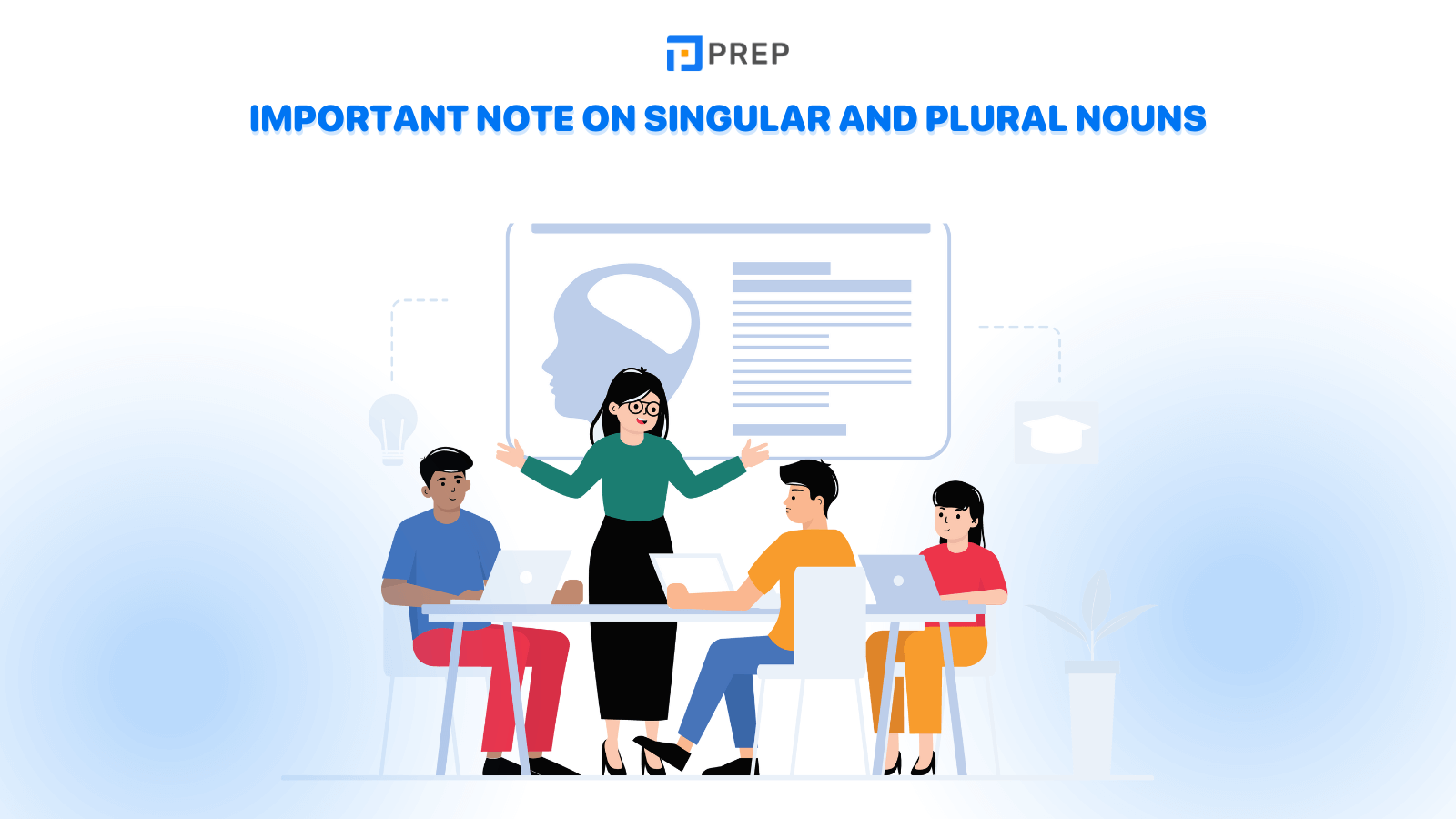Proper Presentation of Answers on the IELTS Listening Answer Sheet
To achieve a high band score in the IELTS exam in general, and the IELTS Listening Test in particular, besides effective listening strategies, test-takers must also be familiar with the proper presentation of answers on the IELTS Listening Answer Sheet. Therefore, to help Preppies achieve the highest scores, here are some guidelines for presenting answers. Please refer to the detailed article below for more information.
- I. Should the answers be written in uppercase or lowercase?
- II. Can abbreviations be used for units of measurement?
- III. Should numbers or words be used?
- IV. Will multiple answers be counted for points?
- V. What happens if there are spelling mistakes?
- VI. How should the answers be filled in for MCQ questions?
- VII. How should the date be written on the IELTS Listening Answer Sheet?
- VIII. Important note on singular and plural nouns
- IX. Can incorrect answers be crossed out/erased on the answer sheet?
- X. Crack the IELTS Exam With Confidence

I. Should the answers be written in uppercase or lowercase?
A common question among IELTS candidates involves the format of answers on the IELTS Listening Answer Sheet, specifically whether to use uppercase or lowercase letters. The examination board accepts answers in both uppercase and lowercase in the Listening section. Nonetheless, it's crucial to keep your writing consistent throughout the exam; avoid mixing uppercase answers with lowercase ones. When opting for lowercase, remember that proper nouns like names of places, people, street names, or abbreviations should be capitalized following standard writing conventions.
|
Right method |
Wrong method |
|
THOMAS/ Thomas |
thomas/ThoMas |
|
(Room No.) AD123H |
(Room No.) Ad123h/ ad123h |
|
PICTURE/picture |
Picture/pictUre |

II. Can abbreviations be used for units of measurement?
The next question that test-takers often have when presenting their answers on the IELTS Listening Answer Sheet is whether abbreviations can be used for units of measurement.
Common units of measurement that often appear in IELTS Listening questions include quantities (such as piece, box, can, weight, amount, gram, kilogram, percentage, etc.) or currency units (US dollars, British pounds, euros, etc.). Usually, these units will be provided in the question, so test-takers only need to fill in the missing numbers instead of including the unit itself. However, if the unit is not provided, test-takers can write the full form or the abbreviation of that unit in the answer, and both will be considered correct.
Note: If the accompanying unit is written in abbreviation form, it will not be counted as one word/number. For example, if 10 is counted as one number, then 10kg is still considered one number. However, if test-takers write the unit in full form, that unit will be counted as one word in the answer. For example, 10% is counted as one number, but 10 percent will be counted as one number and one word. Test-takers should use this note to control the maximum number of words/numbers to be filled in each exercise.
Here are some examples of accepted answers with accompanying units:
- 100 USD/$100
- 117 PIECES/ 117 PCS
- 10 METERS/ 10M

III. Should numbers or words be used?
If the answer to be filled in is a numeral, test-takers can write the number or write it in words, as both forms are accepted. However, it is recommended to prioritize presenting the answer in numerical form rather than in word form for the following reasons:
- Numerical answers are concise and quick.
- They help reduce the risk of spelling errors when filling in more than one word/number.

Comparison of writing numbers/writing words:
|
Numeral form |
Written form |
|
113 days |
one hundred and thirteen days |
IV. Will multiple answers be counted for points?

Each question corresponds to only one correct answer and one point. If a test-taker provides multiple answers, even if one of those answers is correct, the answer will still be marked as incorrect. Therefore, test-takers should carefully consider and select the most accurate answer to fill in the IELTS Listening Answer Sheet.
V. What happens if there are spelling mistakes?

An answer is considered correct only when the test-taker ensures correct spelling of the vocabulary. Cases such as extra, missing, incorrect forms, or inconsistent capitalization will be counted as spelling errors and will not receive any points.
VI. How should the answers be filled in for MCQ questions?

For Multiple Choice Questions that require test-takers to fill in 2-3 correct answers, test-takers only need to select the correct answers and fill in each answer corresponding to the question number. The order of the answers does not have to match the order of the answers in the audio. Specifically, both of the following cases will be scored:
|
The correct answer order according to the audio
|
11. A 12. C 13. G |
|
Accepted answer:
|
11. A, 12. C, 13. G or 11. C, 12. G, 13. A or 11. G, 12. A, 13. C v.v |
VII. How should the date be written on the IELTS Listening Answer Sheet?

For questions that require test-takers to write the date, all standard formats for presenting the day, month, and year are accepted. Specifically:
|
Common formats: |
|
|
Day of the week, month + day (ordinal number), year. |
Tuesday, April 3rd, 2022 |
|
Day of the week, day (ordinal number) + month, year. |
Tuesday, 3rd April, 2022 |
Other presentation formats: Note the use of prepositions "on" – "on April 3rd" or "on 3rd of April."
VIII. Important note on singular and plural nouns

When it comes to singular and plural nouns, test-takers need to pay attention to countable nouns and uncountable nouns to ensure they write the correct singular or plural form in their answers.
- For countable plural nouns, test-takers should add s/es according to the usual rules, except for special cases where the singular and plural forms are the same or the plural form does not add s/es (e.g., woman => women or fish => fish) or nouns that are always in plural form (e.g., trousers, classes).
- For uncountable nouns, do not use their plural form in the answers.
IX. Can incorrect answers be crossed out/erased on the answer sheet?

The final question when presenting the answers on the IELTS Listening Answer Sheet is: Can incorrect answers be crossed out or erased in the writing?
Although test-takers use a pencil to write the answers during the exam and it is easy to make corrections, having a clean, readable answer sheet with minimal erasures will prevent unfortunate situations where the correct answers are not visible or marked as incorrect due to excessive use of erasures.
X. Crack the IELTS Exam With Confidence
This article has provided the most standardized way to present the answers on the IELTS Listening Answer Sheet. If you’re determined to secure a Band 7+, explore our intensive online courses now:
👉 IELTS preparation course: Break Barriers, Achieve Band 7+

Hi I'm Chloe, and I am currently serving as an Product Content Administrator at Prep Education. With over five years of experience in independent online IELTS study and exam preparation, I am confident in my ability to support learners in achieving their highest possible scores.
Comment
Premium content
View allPersonalized roadmap
Most read












